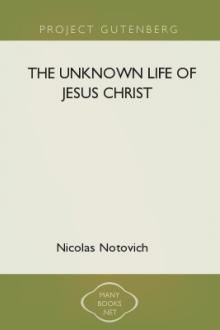The Story of My Life - Helen Keller (top rated ebook readers .txt) 📗

- Author: Helen Keller
- Performer: 0140439153
Book online «The Story of My Life - Helen Keller (top rated ebook readers .txt) 📗». Author Helen Keller
In view of these facts I cannot but think that Helen, while writing “The Frost King,” was entirely unconscious of ever having had the story of “Frost Fairies” read to her, and that her memory has been accompanied by such a loss of associations that she herself honestly believed her composition to be original. This theory is shared by many persons who are perfectly well acquainted with the child and who are able to rise above the clouds of a narrow prejudice.
Very sincerely yours,
M. ANAGNOS.
Director of the Perkins Institution and Massachusetts School for the Blind.
The episode had a deadening effect on Helen Keller and on Miss Sullivan, who feared that she had allowed the habit of imitation, which has in truth made Miss Keller a writer, to go too far. Even to-day, when Miss Keller strikes off a fine phrase, Miss Sullivan says in humorous despair, “I wonder where she got that?” But she knows now, since she has studied with her pupil in college the problems of composition, under the wise advice of Mr. Charles T.
Copeland, that the style of every writer and indeed, of every human being, illiterate or cultivated, is a composite reminiscence of all that he has read and heard. Of the sources of his vocabulary he is, for the most part, as unaware as he is of the moment when he ate the food which makes a bit of his thumbnail. With most of us the contributions from different sources are blended, crossed and confused. A child with but few sources may keep distinct what he draws from each. In this case Helen Keller held almost intact in her mind, unmixed with other ideas, the words of a story which at the time it was read to her she did not fully understand. The importance of this cannot be overestimated. It shows how the child-mind gathers into itself words it has heard, and how they lurk there ready to come out when the key that releases the spring is touched. The reason that we do not observe this process in ordinary children is, because we seldom observe them at all, and because they are fed from so many sources that the memories are confused and mutually destructive. The story of “The Frost King” did not, however, come from Helen Keller’s mind intact, but had taken to itself the mould of the child’s temperament and had drawn on a vocabulary that to some extent had been supplied in other ways. The style of her version is in some respects even better than the style of Miss Canby’s story. It has the imaginative credulity of a primitive folktale; whereas Miss Canby’s story is evidently told for children by an older person, who adopts the manner of a fairy tale and cannot conceal the mature mood which allows such didactic phrases as “Jack Frost as he is sometimes called,”
“Noon, at which time Mr. Sun is strongest.” Most people will feel the superior imaginative quality of Helen Keller’s opening paragraph. Surely the writer must become as a little child to see things like that. “Twelve soldierly-looking white bears” is a stroke of genius, and there is beauty of rhythm throughout the child’s narrative. It is original in the same way that a poet’s version of an old story is original.
This little story calls into life all the questions of language and the philosophy of style. Some conclusions may be briefly suggested.
All use of language is imitative, and one’s style is made up of all other styles that one has met.
The way to write good English is to read it and hear it. Thus it is that any child may be taught to use correct English by not being allowed to read or hear any other kind. In a child, the selection of the better from the worse is not conscious; he is the servant of his word experience.
The ordinary man will never be rid of the fallacy that words obey thought, that one thinks first and phrases afterward. There must first, it is true, be the intention, the desire to utter something, but the idea does not often become specific, does not take shape until it is phrased; certainly an idea is a different thing by virtue of being phrased. Words often make the thought, and the master of words will say things greater than are in him.
A remarkable example is a paragraph from Miss Keller’s sketch in the Youth’s Companion. Writing of the moment when she learned that everything has a name, she says: “We met the nurse carrying my little cousin; and teacher spelled ‘baby.’ AND FOR THE FIRST
TIME I was impressed with the smallness and helplessness of a little baby, and mingled with the thought there was another one of myself, and I was glad I was myself, and not a baby.” It was a word that created these thoughts in her mind. So the master of words is master of thoughts which the words create, and says things greater than he could otherwise know. Helen Keller writing “The Frost King” was building better than she knew and saying more than she meant.
Whoever makes a sentence of words utters not his wisdom, but the wisdom of the race whose life is in the words, though they have never been so grouped before. The man who can write stories thinks of stories to write. The medium calls forth the thing it conveys, and the greater the medium the deeper the thoughts.
The educated man is the man whose expression is educated. The substance of thought is language, and language is the one thing to teach the deaf child and every other child. Let him get language and he gets the very stuff that language is made of, the thought and the experience of his race. The language must be one used by a nation, not an artificial thing. Volapuk is a paradox, unless one has French or English or German or some other language that has grown up in a nation. The deaf child who has only the sign language of De l’Epee is an intellectual Philip Nolan, an alien from all races, and his thoughts are not the thoughts of an Englishman, or a Frenchman, or a Spaniard. The Lord’s prayer in signs is not the Lord’s prayer in English.
In his essay on style De Quincey says that the best English is to be found in the letters of the cultivated gentlewoman, because she has read only a few good books and has not been corrupted by the style of newspapers and the jargon of street, market-place, and assembly hall.
Precisely these outward circumstances account for Helen Keller’s use of English. In the early years of her education she had only good things to read; some were, indeed, trivial and not excellent in style, but not one was positively bad in manner or substance.
This happy condition has obtained throughout her life. She has been nurtured on imaginative literature, and she has gathered from it into her vigorous and tenacious memory the style of great writers. “A new word opens its heart to me,” she writes in a letter; and when she uses the word its heart is still open. When she was twelve years old, she was asked what book she would take on a long railroad journey. “Paradise Lost,” she answered, and she read it on the train.
Until the last year or two she has not been master of her style, rather has her style been master of her. It is only since she has made composition a more conscious study that she has ceased to be the victim of the phrase; the lucky victim, fortunately, of the good phrase.
When in 1892, she was encouraged to write a sketch of her life for the Youth’s Companion, in the hope that it would reassure her and help her to recover from the effect of “The Frost King,” she produced a piece of composition which is much more remarkable and in itself more entertaining at some points than the corresponding part of her story in this book. When she came to retell the story in a fuller form, the echo was still in her mind of the phrases she had written nine years before. Yet she had not seen her sketch in the Youth’s Companion since she wrote it, except two passages which Miss Sullivan read to her to remind her of things she should say in this autobiography, and to show her, when her phrasing troubled her, how much better she did as a little girl.
From the early sketch I take a few passages which seem to me, without making very much allowance for difference in time, almost as good as anything she has written since: I discovered the true way to walk when I was a year old, and during the radiant summer days that followed I was never still a minute….
Then when my father came in the evening, I would run to the gate to meet him, and he would take me up in his strong arms and put back the tangled curls from my face and kiss me many times, saying, “What has my Little Woman been doing to-day?”
But the brightest summer has winter behind it. In the cold, dreary month of February, when I was nineteen months old, I had a serious illness. I still have confused memories of that illness.
My mother sat beside my little bed and tried to soothe my feverish moans while in her troubled heart she prayed, “Father in Heaven, spare my baby’s life!” But the fever grew and flamed in my eyes, and for several days my kind physician thought I would die.
But early one morning the fever left me as mysteriously and unexpectedly as it had come, and I fell into a quiet sleep. Then my parents knew I would live, and they were very happy. They did not know for some time after my recovery that the cruel fever had taken my sight and hearing; taken all the light and music and gladness out of my little life.
But I was too young to realize what had happened. When I awoke and found that all was dark and still, I suppose I thought it was night, and I must have wondered why day was so long coming.
Gradually, however, I got used to the silence and darkness that surrounded me, and forgot that it had ever been day.
I forgot everything that had been except my mother’s tender love.
Soon even my childish voice was stilled, because I had ceased to hear any sound.
But all was not lost! After all, sight and hearing are but two of the beautiful blessings which God had given me. The most precious, the most wonderful of His gifts was still mine. My mind remained clear and active, “though fled fore’er





Comments (0)